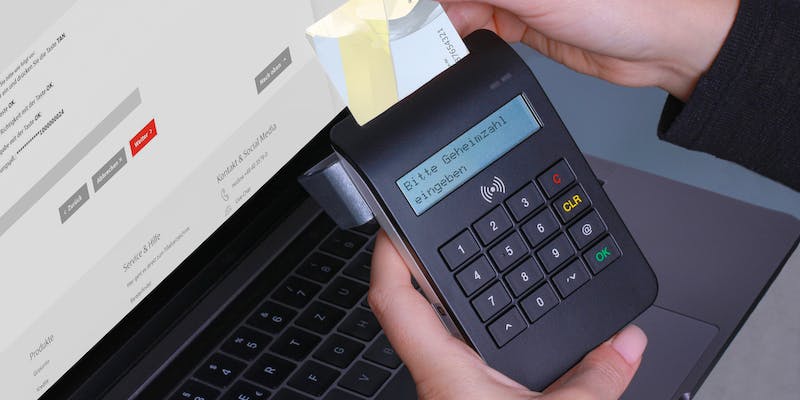Safeguarding Your Money: A Guide to Handling Chase Credit Card Disputes
Nov 08, 2023 By Triston Martin
If you've ever found a questionable charge on your Chase credit card statement, don't worry; you're not alone. Credit card charges can sometimes be inaccurate or even fraudulent, but the good news is that you have the right to dispute them. In this step-by-step guide, we'll walk you through the process of disputing a Chase credit card charge, making it as simple and hassle-free as possible.
Understanding the Basics of a Chase Credit Card Charge Dispute
Before diving into the steps, it's essential to understand the basic concept of a credit card charge dispute. A dispute occurs when you believe that a transaction on your Chase credit card statement is incorrect or unauthorized. You have the right to request a review of the charge and potentially get it removed from your bill. Let's get started.
Why Dispute a Chase Credit Card Charge?
Before we dive into the steps, let's understand why disputing a credit card charge is necessary. There are a few common scenarios in which you might need to dispute a charge:
Unauthorized Charges
If you notice a charge on your Chase credit card statement that you didn't make, it's crucial to dispute it promptly. This could be a sign of fraud or identity theft.
Billing Errors
Mistakes can happen, and sometimes, you may be billed for the wrong amount or charged multiple times for a single transaction. In such cases, disputing the charge is your best option.
Goods or Services Not Received
If you paid for a product or service but didn't receive what you were promised, disputing the charge can help you get your money back.
Dissatisfaction with Quality
If you're unhappy with a purchase and the merchant refuses to address the issue, disputing the charge may be the way to go.
A Step-by-Step Guide to Dispute a Chase Credit Card Charge
Now that we know why disputing a Chase credit card charge is essential let's move on to the steps you need to follow.

Step 1: Review Your Statement
The first step in disputing a Chase credit card charge is to thoroughly review your monthly statement. Ensure you understand every single transaction listed. Look for any discrepancies or unfamiliar charges. Sometimes, errors can occur, and it's essential to identify them before moving forward.
Step 2: Contact the Merchant
In many cases, before involving Chase, it's a good practice to reach out to the merchant. Explain the situation and ask if they can resolve the issue. Merchants are often willing to correct errors or refund unauthorized charges. It's the quickest way to resolve the problem and can save you time and hassle.
Step 3: Log In to Your Chase Account
If the merchant doesn't resolve the issue, or if the charge is genuinely unauthorized, it's time to involve Chase. Log in to your Chase online account. If you don't have an online account, you can sign up on the Chase website. Having an online account is essential for the dispute process.
Step 4: Navigate to the Dispute Section
Once you're logged in, navigate to the "Dispute a Charge" section. This is usually found in the "Account Services" or "Help & Support" menu. Click on the option that best describes your issue.
Step 5: Select the Transaction to Dispute
In this step, you'll need to select the specific transaction you want to dispute. Chase will ask you to provide details about the charge, so make sure you have all the information handy, such as the date of the transaction, the merchant's name, and the transaction amount.
Step 6: Provide a Reason for the Dispute
Chase will ask you to provide a reason for the dispute. You can select from various options, such as "unauthorized charge" or "billing error." Choose the option that best fits your situation and provide a brief explanation of why you're disputing the charge.
Step 7: Submit Your Dispute
After completing the required information, review your dispute request to ensure everything is accurate. Once you're satisfied, submit the dispute. Chase will then review your request and notify you of the outcome.
Step 8: Wait for Chase's Response
Once you've submitted the dispute, all you need to do is wait. Chase will investigate the charge and typically get back to you within 30 days. In the meantime, it's a good idea to keep an eye on your account and make at least the minimum payment to avoid late fees and interest charges.
Step 9: Review Chase's Decision
Chase will inform you of their decision regarding the dispute. If they find it in your favor, the charge will be removed from your statement. If not, you'll need to decide if you want to pursue the matter further.
Tips for a Successful Dispute
Here are some tips to increase your chances of a successful dispute with Chase:

Act Quickly
Don't wait too long to dispute a charge. Chase has specific time limits for filing disputes, so it's best to act promptly.
Document Everything
Keep records of all communication with the merchant and Chase, as well as any supporting documents.
Be Clear and Concise
When explaining your dispute, be clear and concise. State the facts and provide all necessary details.
Stay Calm and Polite
Dealing with disputes can be frustrating, but it's essential to remain calm and polite when speaking with customer service representatives.
Check Your Statements
Regularly review your credit card statements to catch any discrepancies early.
Final Thoughts!
Disputing a Chase credit card charge is a straightforward process when you follow the steps outlined in this guide. Remember that you have the right to dispute any charge that you believe is inaccurate, unauthorized, or fraudulent. Be proactive, stay organized, and provide all the necessary information to increase your chances of a successful resolution.
In the end, your Chase credit card is a valuable financial tool, and it's essential to protect it from any erroneous or unauthorized charges. By knowing how to dispute a charge, you can enjoy the peace of mind that comes with responsible credit card management.

ira-guru-ed-slott-on-taxes-retirement-roth-iras Nov 19, 2023
IRA Guru Ed Slott On Taxes, Retirement and Roth IRAs

mortgage-fraud Nov 21, 2023
Protect Your Home and Finances: How To Avoid Mortgage Fraud

Susan Kelly Sep 01, 2022
Review of Accredited Debt Relief

Susan Kelly Nov 20, 2022
Issues with the financing of the short sale property

worst-and-best-states-to-saving-money Nov 19, 2023
The Worst And Best States To Live In For Saving Money

Triston Martin Mar 05, 2022